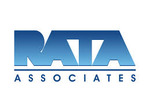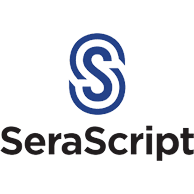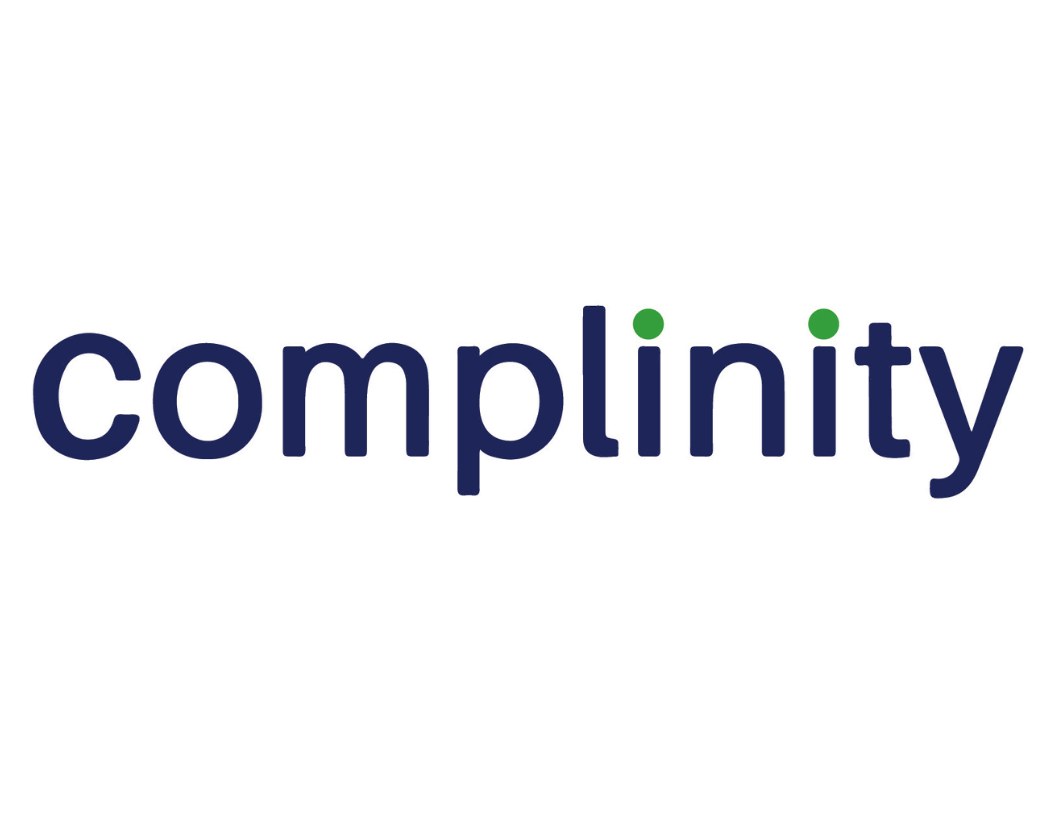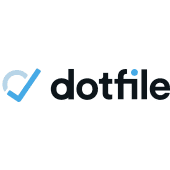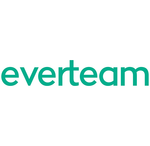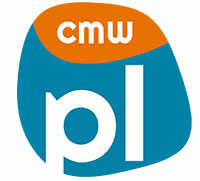What Is Compliance Management Software?
Compliance management software, often known as regulatory compliance software, is a digital application that helps businesses and organizations comply with applicable laws, regulations, and industry standards. It simplifies the monitoring and management of compliance by offering a single platform for tracking, reporting, and maintaining compliance-related duties.
This software is critical for businesses such as healthcare, finance, and manufacturing that require regulatory compliance. Noncompliance can result in significant penalties, legal ramifications, and reputational damage. Compliance management software provides a complete solution for staying on top of compliance standards by automating procedures, decreasing manual errors, and delivering real-time information.
Typical aspects of compliance management software include regulatory mapping, risk assessment, policy administration, audit tracking, and employee training. These capabilities allow firms to identify and handle possible compliance problems in advance, develop policies and processes, track audits and corrective actions, and teach personnel on compliance standards.
Some compliance management software provides configurable solutions to satisfy the unique needs of various businesses and regulatory regulations. These software solutions are typically scalable, allowing firms to add or modify compliance components as their requirements change. Real-time reporting and analytics are another important feature of compliance management software. These tools give a business a comprehensive perspective of its compliance status, highlight gaps and opportunities for improvement, and generate compliance reports for internal and external stakeholders.
What Are The Recent Trends In Compliance Management Software?
Compliance management software is a useful tool for firms of all sizes since it ensures conformity to industry regulations and corporate procedures. As the regulatory landscape evolves and becomes more complicated, compliance management software adapts to meet evolving company needs.
we will look at the most recent trends in compliance management software that you should keep in mind when making a purchase decision.
1. Automation And Artificial Intelligence (AI): Automation and artificial intelligence (AI) are becoming increasingly popular in compliance management software as a means of streamlining operations and improving productivity. The program uses AI to analyze and interpret vast volumes of data in order to discover potential compliance concerns and make recommendations for remedy. This not only saves time and resources, but also reduces the likelihood of human error in compliance reporting.
2. Cloud-Based Solutions: Cloud-based compliance management software is becoming increasingly popular due to its flexibility, scalability, and cost-effectiveness. A cloud-based solution allows businesses to access software from anywhere with an internet connection, and updates can be easily installed without the need for human installations. This enables more effective cooperation and real-time access to compliance data, making it an ideal solution for firms with remote teams or various locations.
3. Integration With Other Software Systems: Another development in compliance management software is integration with other company software systems including accounting, human resources, and project management. This interface enables easy data sharing, reducing the need for redundant data entry and guaranteeing consistency across all platforms. This also provides a comprehensive view of compliance-related data, making it easier to track and manage compliance efforts.
4. Mobile Compatibility: In today's fast-paced work environment, the ability to access information on the go is critical. As a result, several compliance management software suppliers now provide mobile-friendly versions for smartphones and tablets. This enables real-time access to compliance data, notifications of future deadlines, and the opportunity to take corrective measures while away from the office.
5. Focus On Data Privacy And Security: Data privacy and security have long been major priorities for enterprises, and compliance management software is no different. Recent developments indicate a greater emphasis on data privacy and security elements, such as encryption, access limits, and frequent security audits. This provides organizations with piece of mind by ensuring that their data is secure and assists them in meeting data protection regulatory obligations.
Benefits Of Using Compliance Management Software
Compliance management software is a valuable resource for businesses of all sizes and sectors. It is intended to assist firms in adhering to regulatory regulations, internal policies, and industry best practices. In this buyer's guide, we'll look at the benefits of utilizing compliance management software and how it can help your firm optimize its compliance operations.
1. Centralized Compliance Management: One of the primary advantages of employing compliance management software is the ability to consolidate all compliance-related procedures and data. This implies that, rather of using different tools, spreadsheets, and manual processes to maintain compliance, everything can be consolidated into a single system. This not only saves time and effort, but also guarantees consistency and accuracy in compliance management.
2. Automates Compliance Processes: Compliance management software includes automation features that can greatly reduce the manual workload of compliance officers. Tasks like tracking compliance deadlines, conducting audits, and preparing reports can be automated, freeing up managers' time to focus on more strategic issues.
3. Real-Time Monitoring: Compliance management software allows firms to track their compliance status in real time. This implies that any possible difficulties or non-compliance can be identified and rectified right away, lowering the risk of penalties or fines.
4. Customizable For Varied Rules: Compliance regulations vary by industry and area. Compliance management software enables for customisation to match your organization's specific compliance standards. This ensures that your organization complies with all applicable requirements, lowering the chance of legal ramifications.
5. Improved Data Security: Compliance management software includes advanced security capabilities to safeguard sensitive compliance data. This reduces the risk of data breaches and guarantees that all personal information is safe in accordance with industry standards.
6. Improved Visibility And Reporting: Compliance management software includes extensive reporting and analytics capabilities, allowing firms to get insight into their compliance initiatives. This data can assist uncover areas for improvement and allow management to make better educated decisions.
7. Cost And Time-Effective: By automating compliance processes and centralizing all compliance-related activities, firms can save both time and money. This can be especially useful for smaller organizations that may lack the resources to engage a specialized compliance team.
Important Factors To Consider While Purchasing Compliance Management Software?
When it comes to choosing compliance management software, several essential elements must be carefully evaluated in order to make the best option for your company. Here are the most significant variables to consider:
1. Sector-Specific Compliance Needs: Each sector has its own set of regulatory compliance needs, so select software that is specifically developed to fulfill your industry's standards. This ensures that the program efficiently addresses all of your company's compliance requirements.
2. Functions And Functionality: Compliance management software includes functions such as document management, audit trails, risk assessment, and reporting. It is critical to thoroughly examine which features are necessary for your organization and select software that provides them to satisfy your specific requirements.
3. Usability: The software should be simple to use and navigate, with a user-friendly interface. Consider how much time and effort will be required to train your personnel on how to use the software, and look for choices with a straightforward and intuitive design.
4. Customization And Scalability: Your company's compliance requirements may be unique, so choose software that enables for customization to meet your specific demands. Furthermore, as your firm expands, the software should be able to scale with it.
5. Integration With Existing Systems: The software you select should work easily with other systems and applications that you already use in your firm. This prevents data duplication and improves the overall efficiency of your compliance management process.
6. Data Security And Compliance: Given the huge volume of sensitive data that compliance management software manages, data security is critical. Look for software that has strong security measures in place and complies with applicable data privacy legislation.
7. Cost And Budget: When choosing software, price is usually a big consideration. Consider both the purchase price and any continuing maintenance or subscription fees. Make sure you purchase software that suits your budget and provides the best value for your money.
8. Vendor Support: Before making a purchase, you should examine the software vendor's reputation and track record. Look for a provider that provides excellent customer service, delivers regular software upgrades, and has a proven track record of keeping their software up to date with new compliance laws.
What Are The Key Features To Look For In Compliance Management Software?
When contemplating investing in compliance management software, be sure it suits your specific needs and expectations. Here are the important elements to look for in a compliance management software that will help you make an informed decision:
1. Customization Options: Each organization has its own set of compliance needs and processes. As a result, it is critical to select software that can be tailored to your company's specific policies and procedures. This ensures that the software is suited to your exact compliance requirements.
2. Automated Regulatory Updates: Compliance regulations are continually changing and expanding, making it difficult for firms to stay current. A good compliance management software should include automated functions that allow you to update your system on a regular basis and stay up to current on regulatory changes. This will save you time and keep your firm up to date on compliance needs.
3. Risk Assessment And Management: Compliance management focuses on reducing risk and ensuring that your company operates ethically. Look for software that has risk assessment and management features to help you detect any compliance holes and minimize them. This tool will allow you to remain on top of potential hazards and avoid costly compliance violations.
4. Document Management: Compliance rules frequently require firms to keep a variety of papers, including policies, processes, and reports. The ideal software should include complete document management capabilities to help you organize, store, and access these papers more efficiently. This not only ensures compliance, but also streamlines your document handling procedures.
5. User-Friendly Interface: Compliance management software is only useful if it is simple to use and browse. Look for a simple, intuitive UI that does not require much training to utilize. This will save you time and resources while ensuring that all staff can utilize the software without difficulty.
6. Reporting And Analytics: Data collection and analysis are critical components of compliance management. The software you use should provide strong reporting and analytics capabilities that provide real-time insights into your compliance performance. This allows you to identify areas for development and make data-driven decisions to improve your compliance tactics.
7. Integration Capabilities: Depending on your industry, you may need to combine compliance management software with other systems like human resource management or payroll software. Look for software with integration features to ensure smooth data flow and increased efficiency. By taking these essential elements into account, you may locate compliance management software that suits your business requirements while also assisting you in remaining regulatory compliant. Consider your company's specific requirements and choose software that provides the most relevant capabilities for your organization's compliance management needs.
Why Do Businesses Need Compliance Management Software?
Compliance management software has become an indispensable tool for businesses of all sizes. With an ever-expanding list of regulations and legislation, businesses must maintain compliance to avoid hefty fines and brand damage. Compliance management software streamlines and simplifies the difficult process of managing and maintaining compliance, freeing up organizations to focus on their core operations.
One of the key reasons why businesses use compliance management software is to stay current with the latest regulations and laws. In today's fast-paced business climate, regulations can change at any time, and organizations must be aware of them to avoid breaches. Compliance management software assists businesses in staying on top of these changes by automatically updating their compliance rules and processes. Another important consideration is the potential consequences of non-compliance.
Violations can result in significant penalties, legal action, and reputational damage. Businesses can lessen the risk of noncompliance by using compliance management software to ensure that all of their procedures and activities are in line with the most recent regulations. This not only saves businesses from financial fines, but it also safeguards their brand image and client trust.
Furthermore, compliance management software provides a centralized platform for managing all compliance-related activities. This reduces the need for manual and fragmented operations, which are both time-consuming and error-prone. The program consolidates all compliance data into one location, making it easier to track, monitor, and report on compliance actions. This streamlined approach not only saves time and effort, but also ensures accurate and well-documented information in the event of an audit.
Furthermore, compliance management software assists organizations in creating a culture of compliance within their firm. Automating compliance processes and giving real-time alerts and notifications encourages employees to follow compliance policies and procedures. This considerably decreases the chance of human error, which is frequently the source of noncompliance.
How Much Time Is Required To Implement Compliance Management Software?
The time required to install compliance management software varies according to the organization's individual needs and requirements. However, on average, the implementation process can take between two and twelve months, with larger and more sophisticated enterprises requiring longer to properly integrate the software. During the initial phases, the software vendor will collaborate with your firm to understand your compliance processes and determine the best solution for your specific requirements.
This may include tweaks and configurations to ensure that the program meets your specific compliance standards. The next phase is data migration, which involves transferring your old compliance data to the new program. This can take anywhere from a few days to several weeks, depending on the volume and complexity of the data.
Once the data migration is completed, training and testing will be performed to ensure that the software is operational and that all stakeholders are familiar with its features and functionalities. This can take anything from a few weeks to many months, depending on the size of your firm and the complexity of the program.
Finally, the software will be fully implemented and available to all users. This step may necessitate continuing maintenance and fine-tuning to fully optimize the program for your organization's requirements. To summarize, while the actual time necessary to implement compliance management software will vary, it is critical to devote enough time and resources to ensure a successful and seamless integration. Consult with the software provider to obtain a more accurate timeline tailored to your organization's specific requirements.
What Is The Level Of Customization Available In Compliance Management Software?
Compliance management software is an effective tool for helping firms stay on top of complex regulatory requirements and maintain conformity to diverse compliance standards. One important feature that distinguishes different compliance management software solutions is their amount of customisation. In layman's words, how much flexibility does the program provide in terms of adapting it to the specific demands and processes of a business?
The level of flexibility offered in compliance management software varies greatly between solutions. While some may provide simple customization possibilities, others enable considerable customization and tweaking. This simply means that the software can be tailored and configured to match the specific compliance requirements and procedures of a certain firm.
So, why is customization necessary in compliance management software? For instance, each business functions differently, even within the same industry. As a result, a one-size-fits-all strategy to compliance management may be ineffective. Customization enables firms to adjust software to their own processes, regulations, and reporting needs.
This can save time, increase efficiency, and prevent unneeded issues. Compliance management software can be customized in a variety of ways, including the user interface, functions, and reporting options. Some software may allow for basic adjustments, such as changing the color scheme or adding a company logo.
On the other side, more complex customization options may include the ability to construct custom checklists, templates, and workflows, as well as interact with other software systems. When determining the extent of customization required in compliance management software, examine your organization's complexity and scale, as well as the unique compliance needs that must be met.
Smaller businesses with basic operations may not require substantial modification, whereas larger enterprises with complicated compliance requirements may profit from a highly customized software system.
Which Industries Can Benefit The Most From Compliance Management Software?
Compliance management software is a crucial tool for companies of all sizes and sectors. This software enables businesses to streamline and automate their compliance operations, ensuring that they satisfy regulatory requirements and avoid costly penalties. While compliance management software can assist every organization, some industries will see more benefits than others.
In this section, we will look at which industries can gain the most from utilizing compliance management software.
1. Healthcare: Compliance management software is critical in the highly regulated healthcare business. This software assists healthcare firms in managing and tracking different compliance obligations, including HIPAA, patient privacy, and data security. With the ever-changing compliance landscape, compliance management software provides real-time updates and notifications, ensuring that healthcare firms are up to date on the newest legislation and avoid potential legal penalties.
2. Finance: To retain confidence and credibility, financial institutions such as banks, credit unions, and investment businesses must follow tight compliance requirements. Compliance management software assists financial institutions in managing and monitoring their compliance needs, including anti-money laundering (AML), fraud prevention, and consumer protection regulations. With full tracking and reporting tools, this software allows financial institutions to easily manage compliance and avoid regulatory fines.
3. Retail And E-commerce: In the ever-expanding world of retail and e-commerce, compliance management software is critical for ensuring data security and consumer privacy. It helps firms comply with standards such as PCI-DSS for safe payment processing and GDPR for data privacy. These regulations impose significant fines for noncompliance, making compliance management software an essential tool for retail and e-commerce enterprises.
4. Government And Public Sector: Government agencies and public sector organizations handle sensitive information and must follow stringent restrictions to protect it. Compliance management software enables these institutions to handle and track compliance regulations such as the Freedom of Information Act (FOIA) and the Federal Information Security Management Act (FISMA). This software, which can generate audit reports and keep compliance records, is critical to the effective operation of government and public sector enterprises.
5. Education: With the advent of online learning and digital classrooms, educational institutions require strong compliance management software to handle and safeguard sensitive student data. This software assists educational institutions in complying with requirements such as FERPA and the Children's Online Privacy Protection Act (COPPA). Compliance management software helps educational institutions protect their students' data by automating compliance processes and delivering real-time information. In
Conclusion
To summarize, compliance management software is a crucial tool for firms of all sizes and industries in today's complex regulatory environment. With the proper software, businesses can expedite their compliance operations, reduce risks, and assure openness and accountability. When selecting compliance management software, it is critical to analyze your specific objectives and requirements, the level of technical experience and resources available, as well as the features and functionality provided by various vendors.
It is also critical to examine elements like as usability, scalability, and integration capabilities. Based on our research and analysis, we propose that you examine features like automated compliance tracking, real-time reporting, customized processes, and audit trail functionality. Look for software that includes complete compliance monitoring and risk assessment features, as well as the ability to generate compliance reports and documentation quickly.
Consider the vendor's reputation, customer support, and pricing structure while making your decision. Remember that investing in quality compliance management software is a long-term solution that can save your company time, money, and future fines.
Finally, we hope that this buyer's guide has provided you with useful information and considerations to help you select the best compliance management software for your business. By carefully assessing your requirements and possibilities, you can find a solution that will not only keep your organization compliant, but will also improve overall efficiency and effectiveness.



